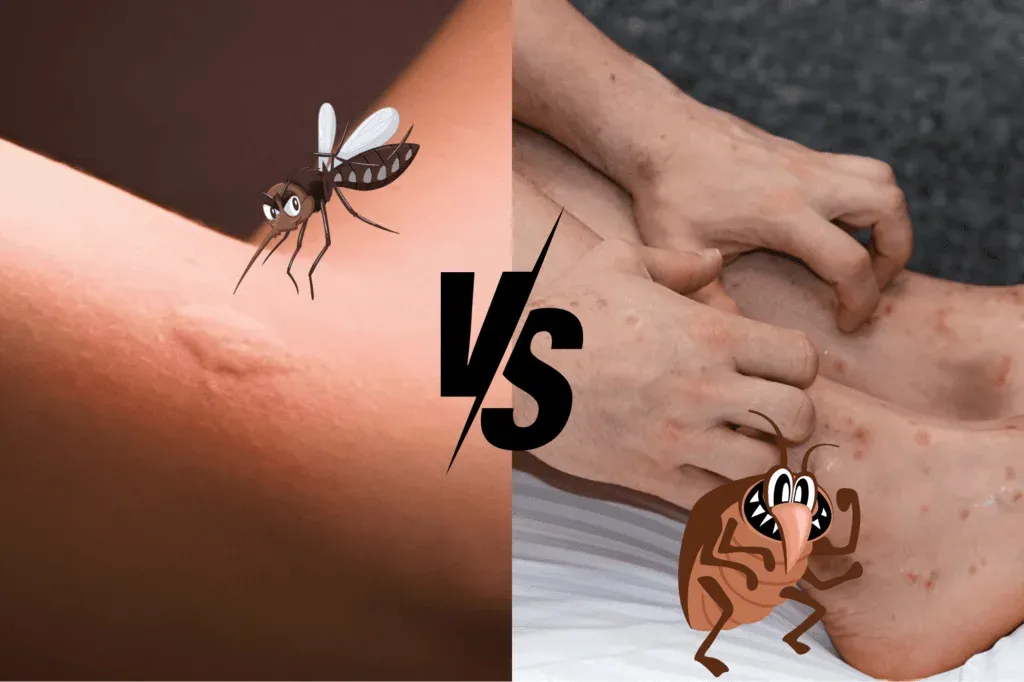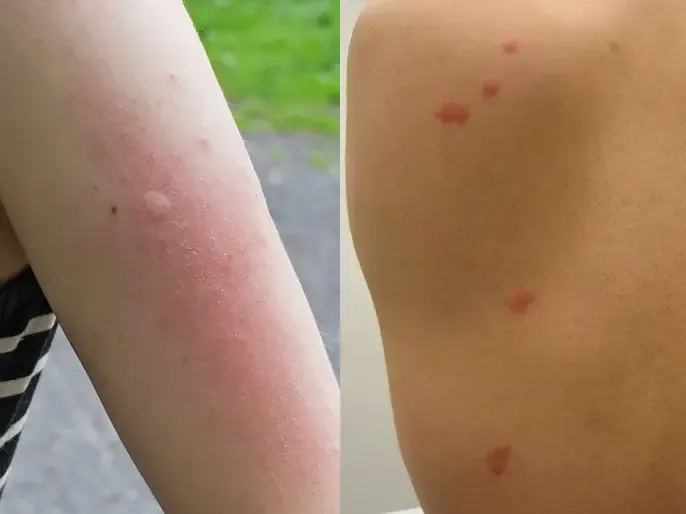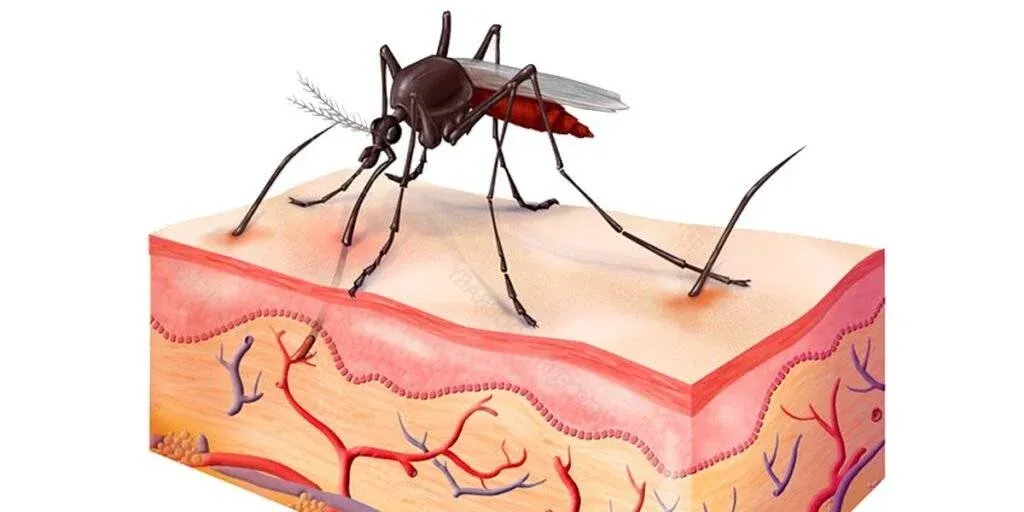Medically Reviewed by Dr. Ayesha Malik, MD (Dermatology & Allergy Specialist)
Author: Qamar Abbas, Health & Wellness Writer
Quick Answer
Mosquito bites itch more at night because your body’s natural cortisol levels drop while blood flow and body temperature rise, making the skin more sensitive. Additionally, during sleep, you have fewer distractions, so you notice the itching more intensely. The combination of reduced inflammation control, increased histamine activity, and heightened skin sensitivity amplifies the itching sensation after dark.
The Science Behind Nighttime Itching
Mosquito bites are small, itchy welts caused by an immune response to the insect’s saliva. However, this itching often feels worse at night — and for good scientific reasons.
1. Lower Cortisol Levels
Cortisol, a natural anti-inflammatory hormone, helps control allergic reactions during the day. But at night, cortisol levels naturally decline, which means itching and swelling become more pronounced.
2. Increased Blood Flow and Body Heat
When you lie down, your body temperature rises slightly, and blood flow increases near the skin’s surface. Consequently, the mosquito bite area becomes warmer and more inflamed, intensifying itchiness.
3. Heightened Skin Sensitivity
During the night, your nervous system becomes more responsive to stimuli. Therefore, even minor irritation from a mosquito bite feels stronger.
4. Lack of Distractions
Throughout the day, your mind focuses on activities. However, at night, when everything is quiet, you notice discomfort more easily, which makes itching feel far worse.
Why Scratching Makes It Worse
Although scratching gives temporary relief, it also damages the skin and can introduce bacteria, leading to infection. Moreover, scratching increases histamine release, which ironically makes the itch even more intense.
👉 Instead of scratching, use cold compresses, antihistamines, or topical hydrocortisone for safer relief.
How to Reduce Mosquito Bite Itching at Night
1. Apply Cold Compresses
Cold helps constrict blood vessels, which reduces swelling and numbs the skin, decreasing itch intensity.
2. Use Anti-Itch Creams or Gels
Over-the-counter creams like hydrocortisone or calamine lotion soothe irritation and reduce inflammation.
3. Take an Oral Antihistamine
Before bed, taking an antihistamine like cetirizine or diphenhydramine can control histamine production and prevent nighttime itching.
4. Keep the Room Cool
A cooler sleeping environment reduces body temperature and limits heat-triggered itching.
5. Try Natural Remedies
A baking soda paste, aloe vera, or oatmeal bath can naturally calm irritation and provide soothing relief.
Expert Tip: Prevent Bites Before Bed
To minimize nighttime itching, prevent mosquito bites in the first place.
Use mosquito repellents containing DEET or picaridin.
Install mosquito nets or screens.
Avoid leaving windows open without protection.
Keep the bedroom clean, dry, and well-ventilated.
Avoid sweet-smelling lotions or perfumes before sleep, as mosquitoes are attracted to scent.
When to Seek Medical Help
Although most mosquito bites are harmless, seek professional care if you experience:
Persistent redness or swelling
Signs of infection (pus, pain, or warmth)
Fever, fatigue, or joint pain (possible viral transmission)
Intense allergic reaction (swelling of lips or eyes, difficulty breathing)
Remember, severe itching or allergic symptoms should never be ignored — early treatment ensures safer recovery.
Frequently Asked Questions (FAQs)
1. Why do mosquito bites itch more when I’m sleeping?
At night, your body temperature rises slightly, and blood flow increases, which causes more swelling and irritation around the bite. Moreover, your cortisol levels — which help reduce inflammation — drop during sleep, allowing the itching sensation to intensify.
2. Does scratching mosquito bites make them worse?
Yes, scratching may provide brief relief; however, it damages the skin and can lead to infection. Furthermore, it causes your body to release more histamines, which in turn increase itching and redness.
3. How can I stop mosquito bites from itching at night?
To reduce nighttime itching, apply a cold compress, use anti-itch creams like calamine lotion, and keep your bedroom cool. Additionally, taking an oral antihistamine before sleep can help calm your body’s allergic response.
4. Are some people more sensitive to mosquito bites?
Absolutely! Some individuals have stronger immune reactions to mosquito saliva, resulting in larger welts and longer-lasting itching. Genetics, skin sensitivity, and prior exposure to mosquito bites all play a role.
5. Can mosquito bites cause serious health problems?
In most cases, mosquito bites are harmless. However, in certain regions, mosquitoes may carry diseases like dengue, malaria, or West Nile virus. Therefore, if you develop fever, fatigue, or severe swelling, seek medical help immediately.
6. Do mosquitoes bite more at night?
Yes, many mosquito species are most active during dusk and nighttime hours. This is when temperatures drop and humidity rises — conditions that attract mosquitoes. As a result, bites and itching are more likely to occur after sunset.
7. What is the best natural remedy for mosquito bite itching?
Natural remedies such as aloe vera gel, baking soda paste, or apple cider vinegar can help relieve itching. Additionally, applying honey or tea tree oil may reduce swelling and prevent infection due to their antimicrobial properties.
8. How long does mosquito bite itching usually last?
Typically, mosquito bite itching lasts between 1 to 3 days. However, if you have sensitive skin or an allergic reaction, the itching may persist longer. Applying topical treatments can shorten healing time and reduce discomfort.
Final Thoughts
Mosquito bites itch more at night primarily due to biological changes in your body, such as lower cortisol levels, increased temperature, and greater skin sensitivity. Moreover, the absence of distractions and quiet nighttime environment makes you more aware of discomfort. Therefore, by keeping your room cool, applying anti-itch remedies, and taking preventive measures, you can reduce irritation and sleep peacefully. Ultimately, consistent care, prompt treatment, and proper prevention strategies make all the difference in keeping mosquito bites under control — day or night.







